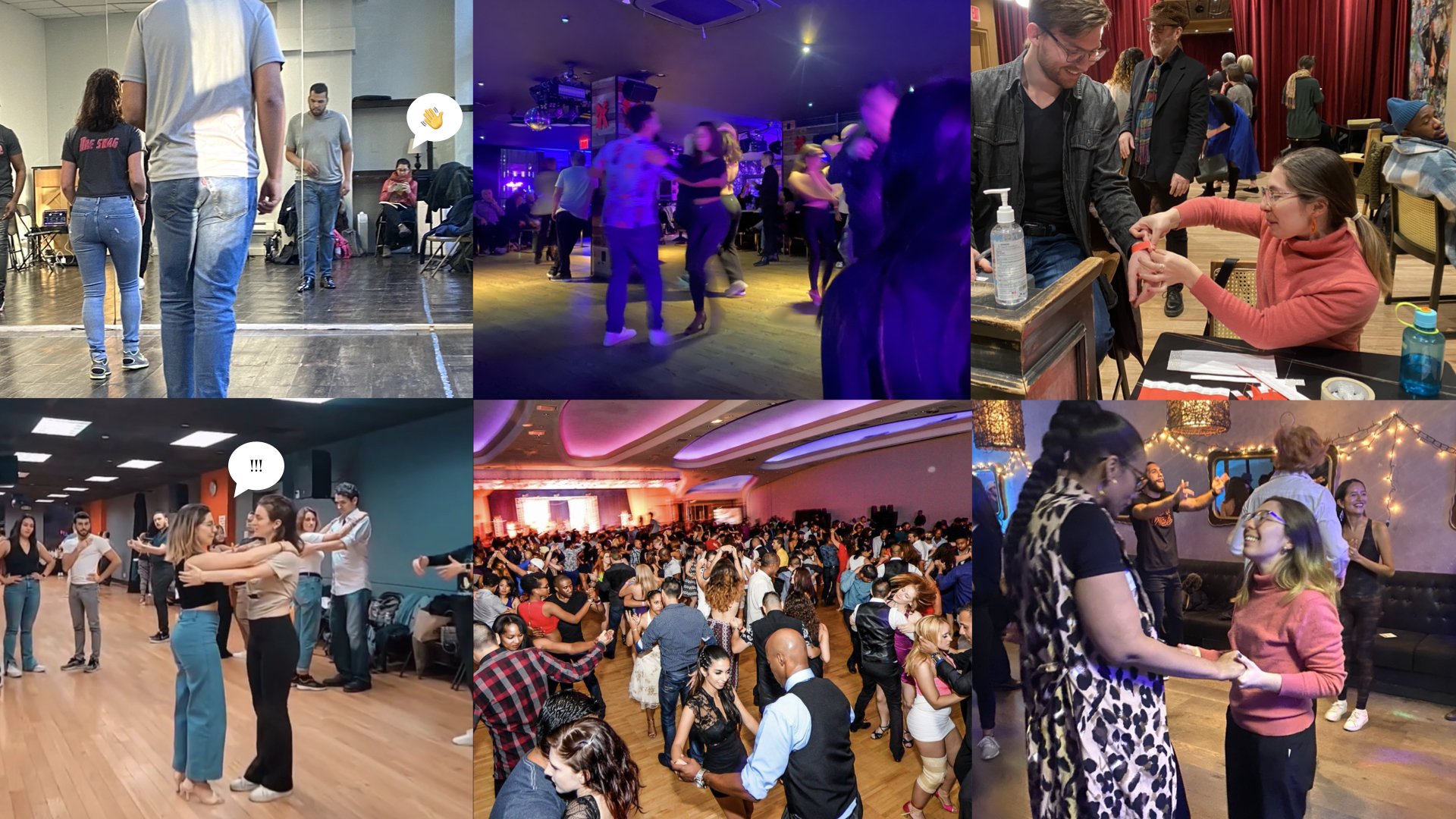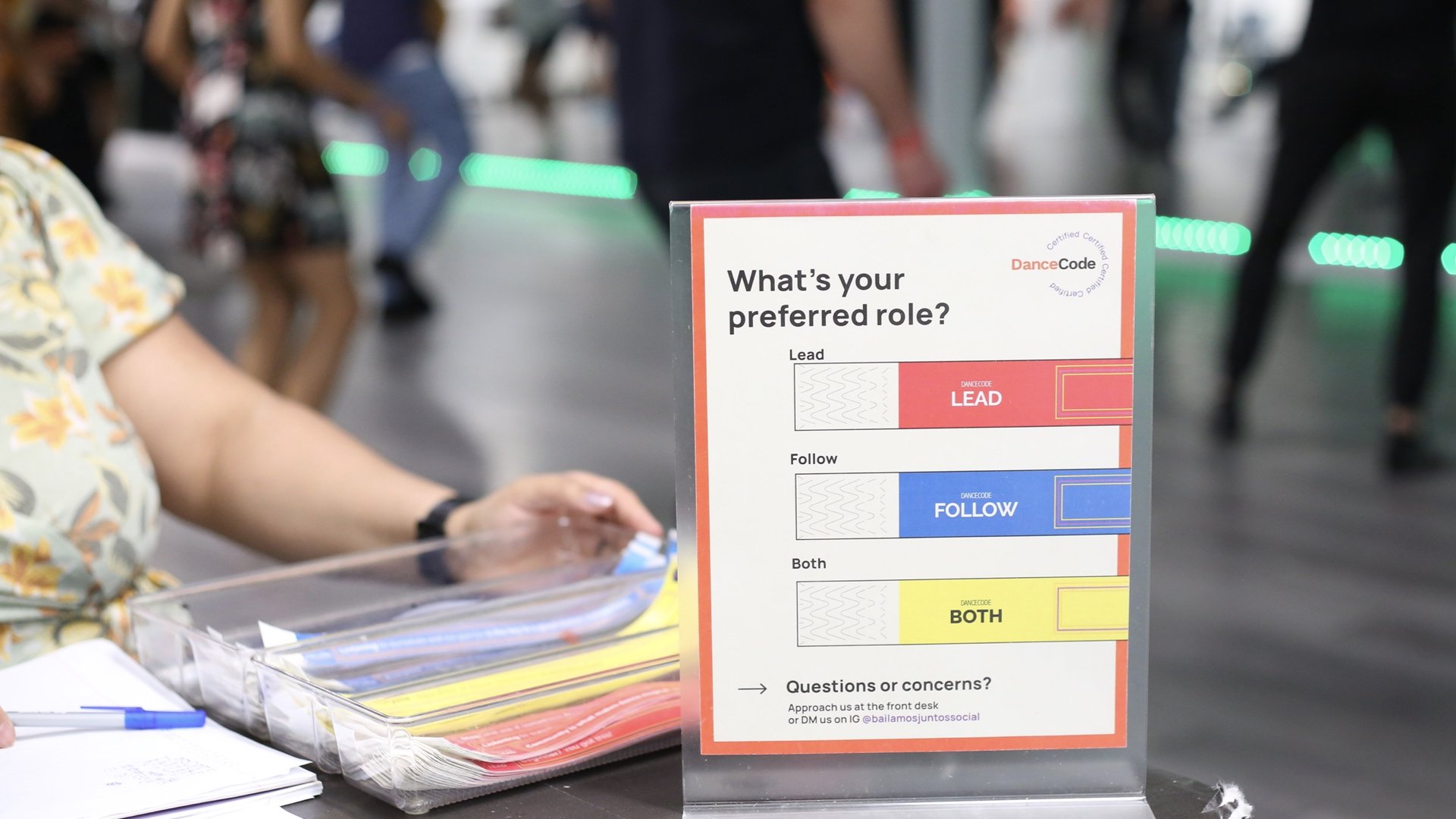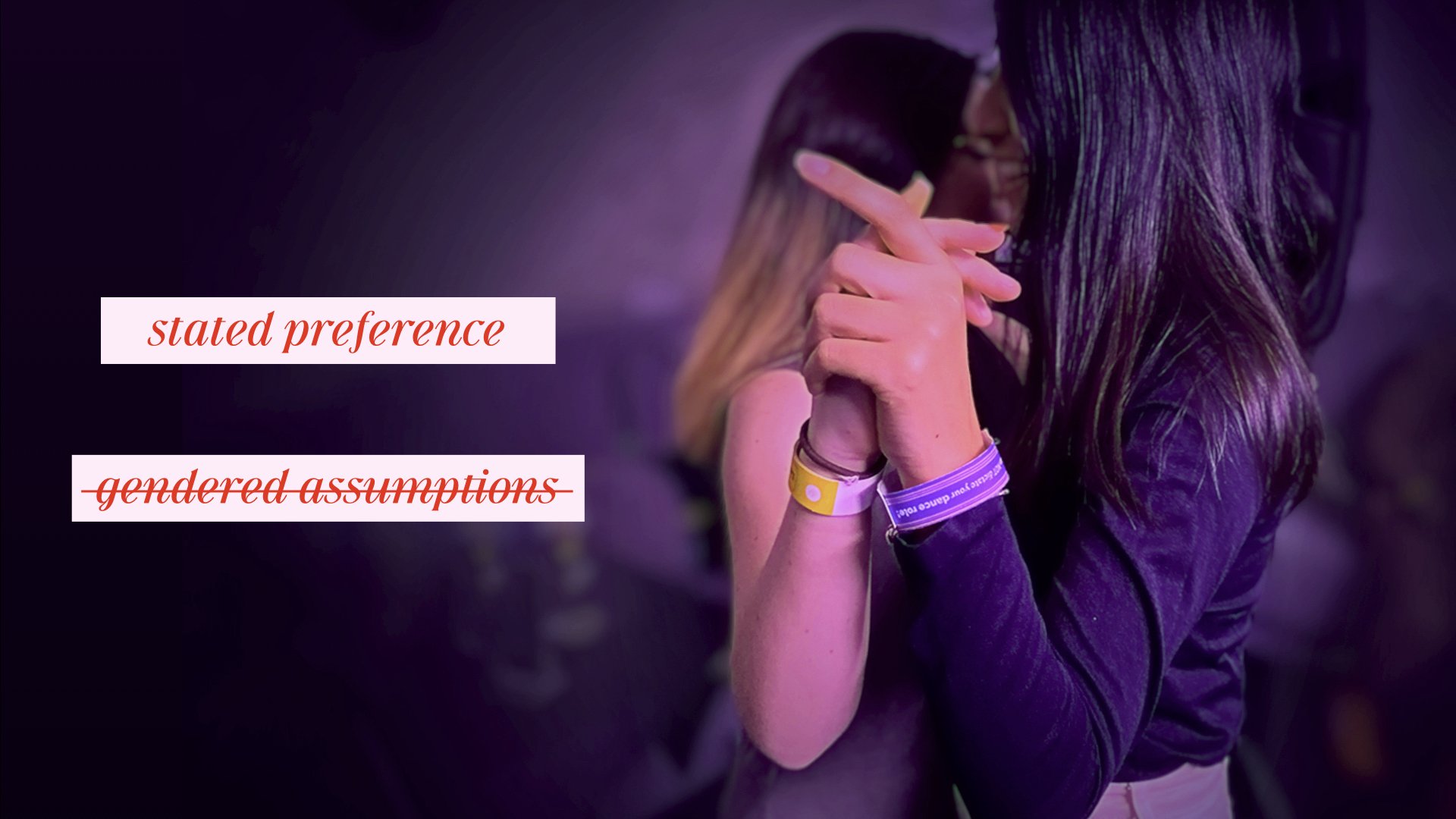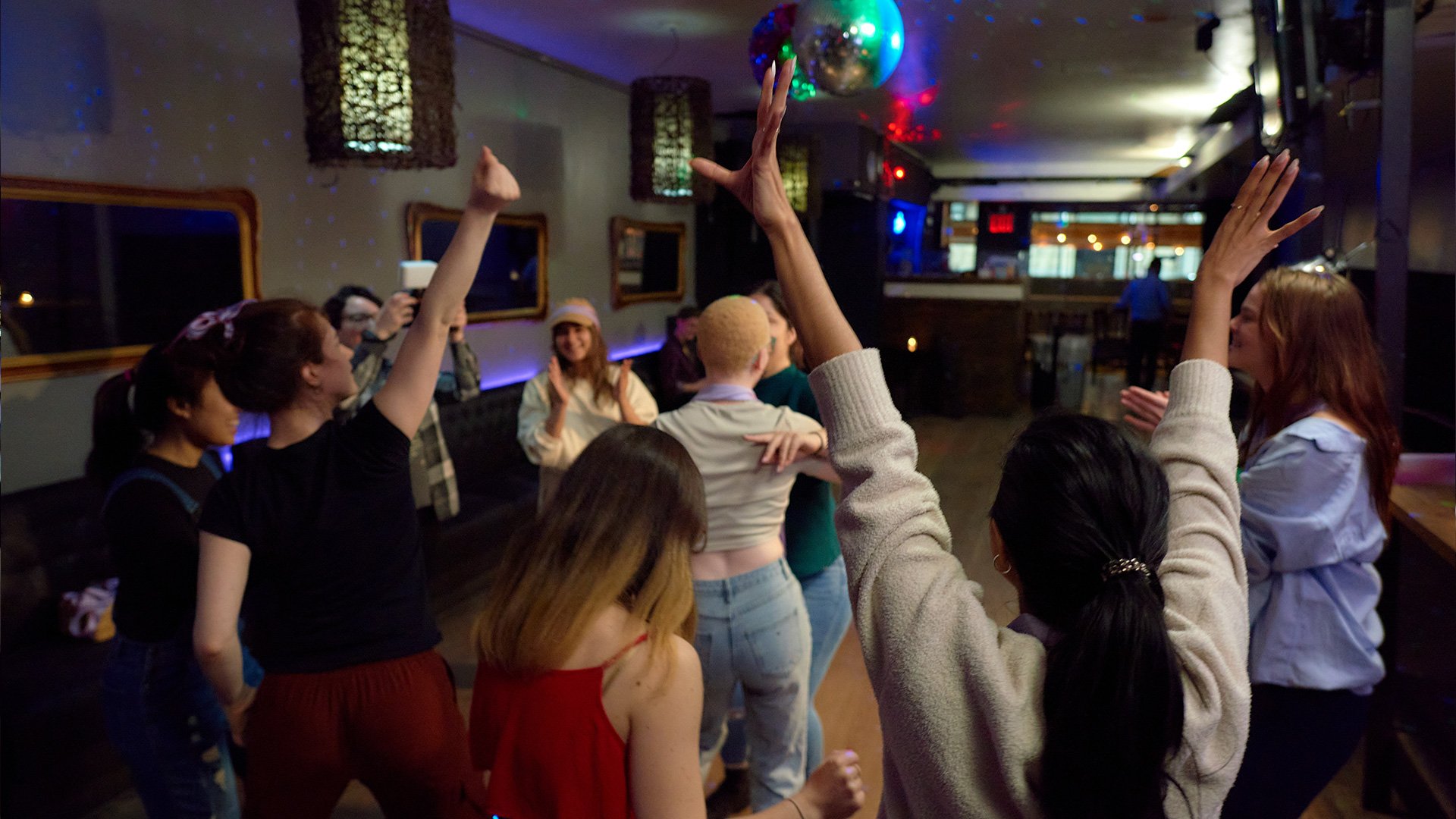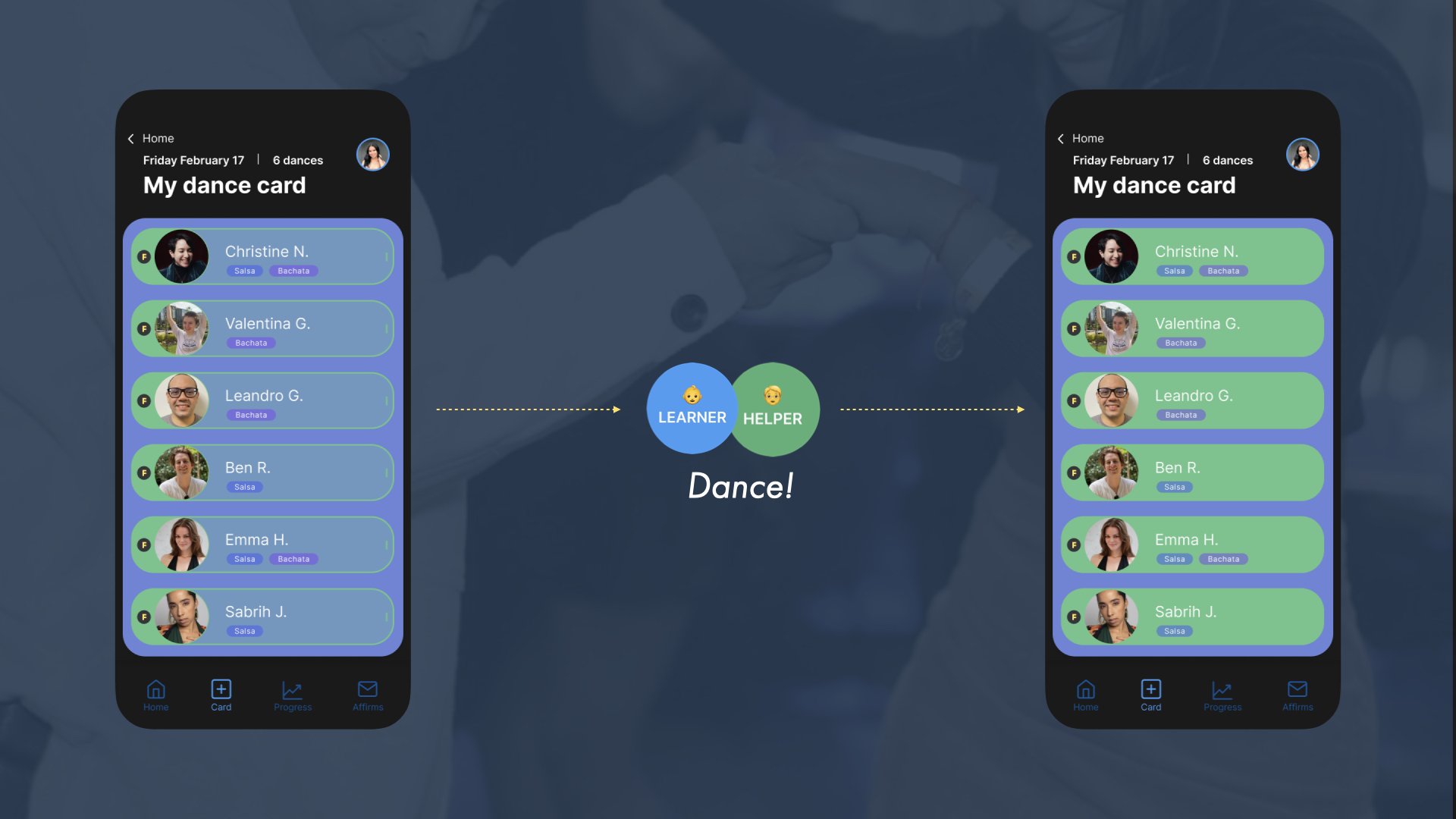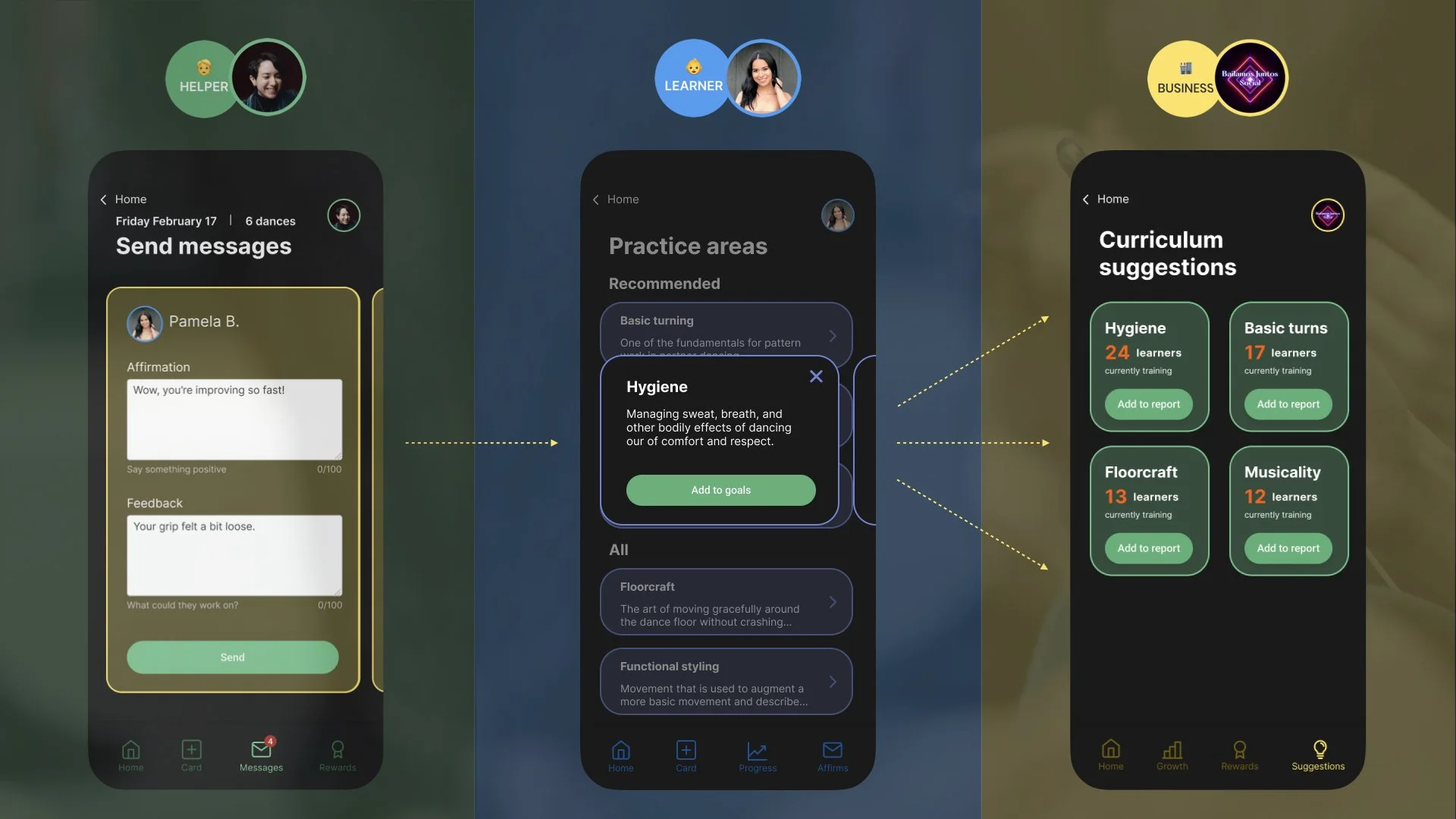Pasos: Design Interventions for Gendered Agency in Latin Partner Dance
Monica Albornoz's thesis, Pasos: Design Interventions for Gendered Agency in Latin Partner Dance, explores ways to break gender norms in cosmopolitan partner dance. Specifically, her thesis investigates the notion that women take the role of followers and men the role of leaders. Monica argues that although gender norms affect all dancers, the bias particularly affects cisgender feminine women.
"In cosmopolitan partner dance, the gender norm acts as a self-reinforcing system that pushes cis-gendered men and women further into their binary roles. This makes it particularly difficult for women to break the norm once they realize they want to lead."
In her thesis, Monica argues that breaking the gender norm is essential not only because it limits access to dancers' full spectrum of dance experiences—which can be transformative—but also because it perpetuates a culture of machismo and sexism.
"My qualitative and quantitative data supported women's current desire to lead in Latin dance as well as the strength of invisible barriers that prevent them from doing so."
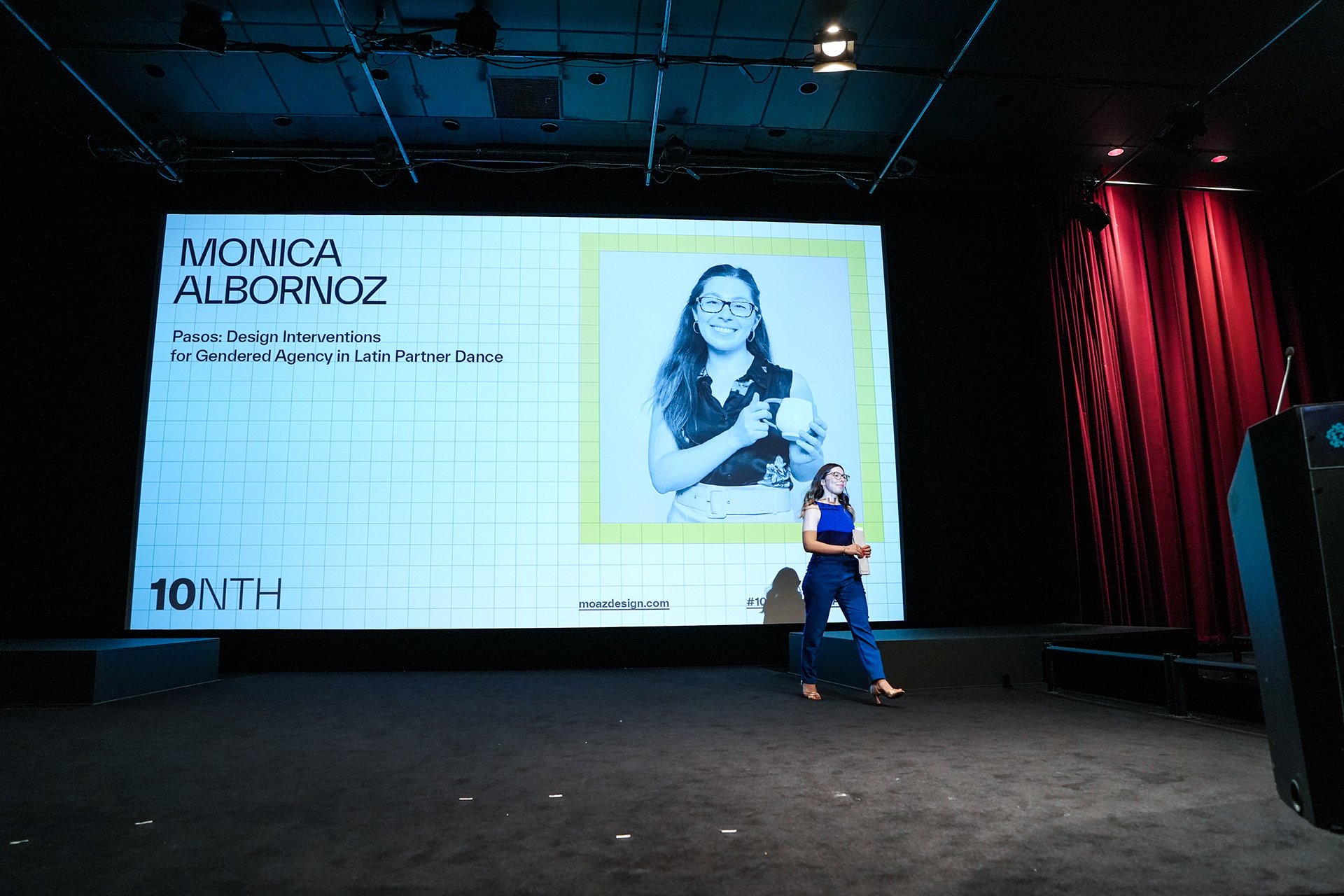
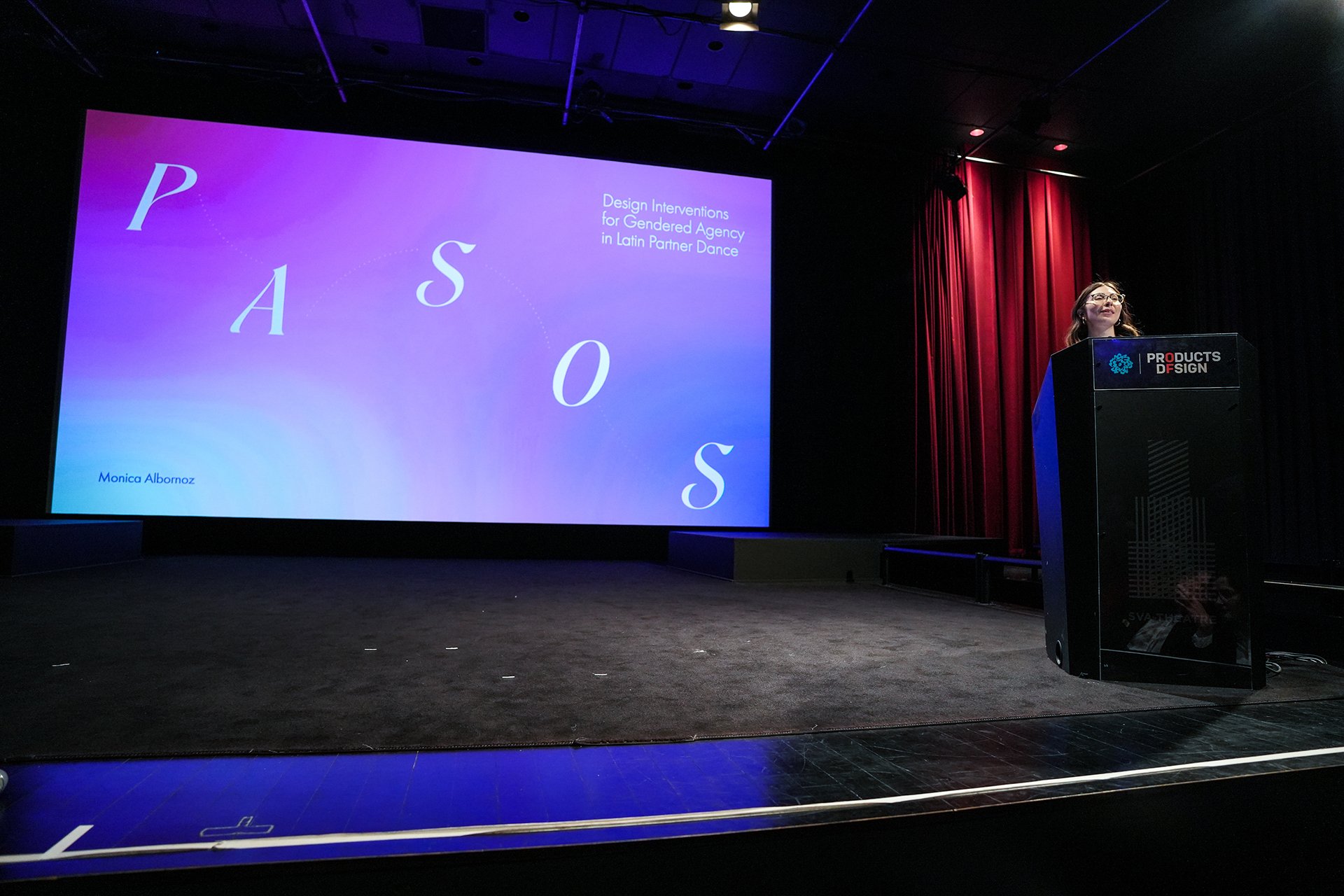
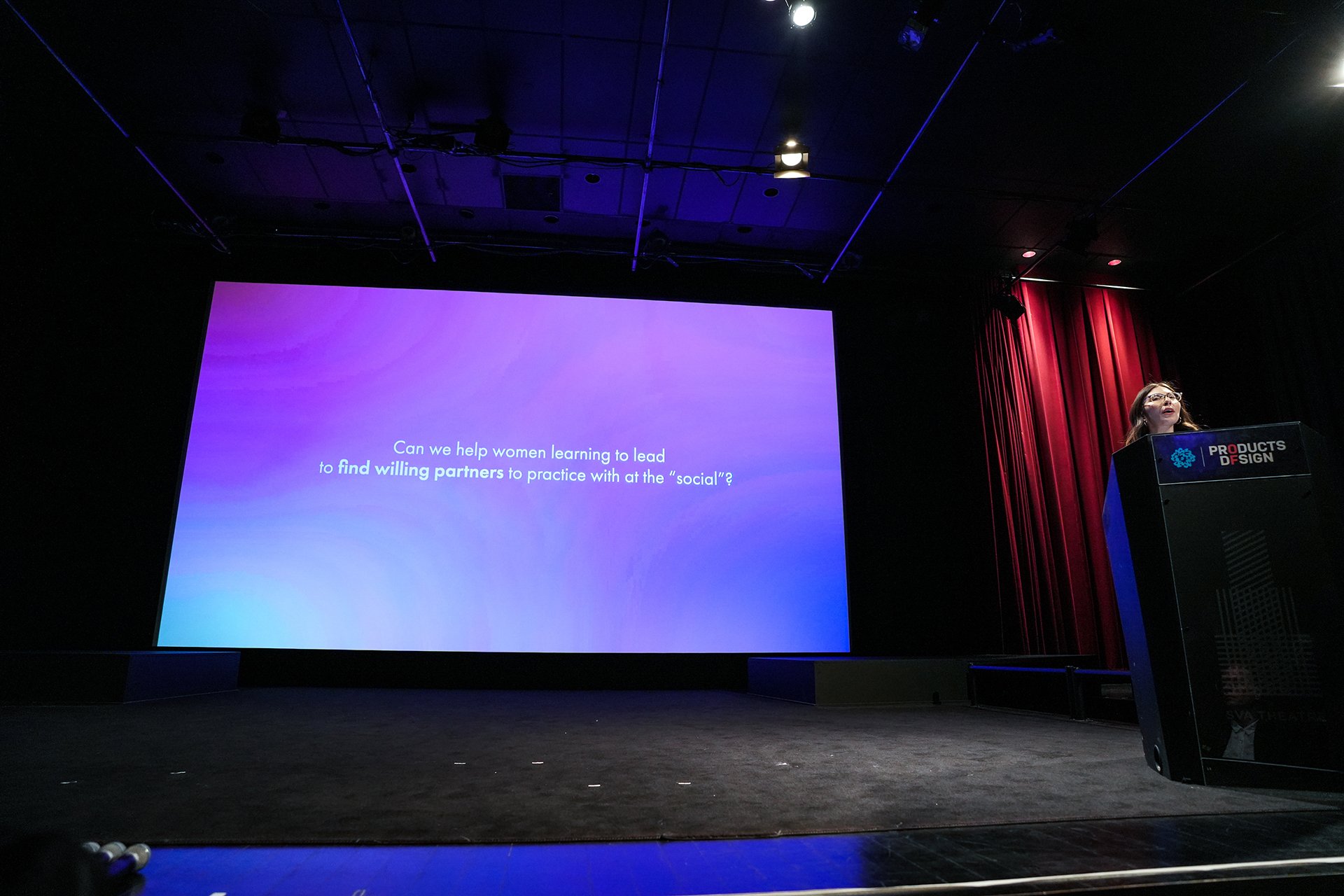
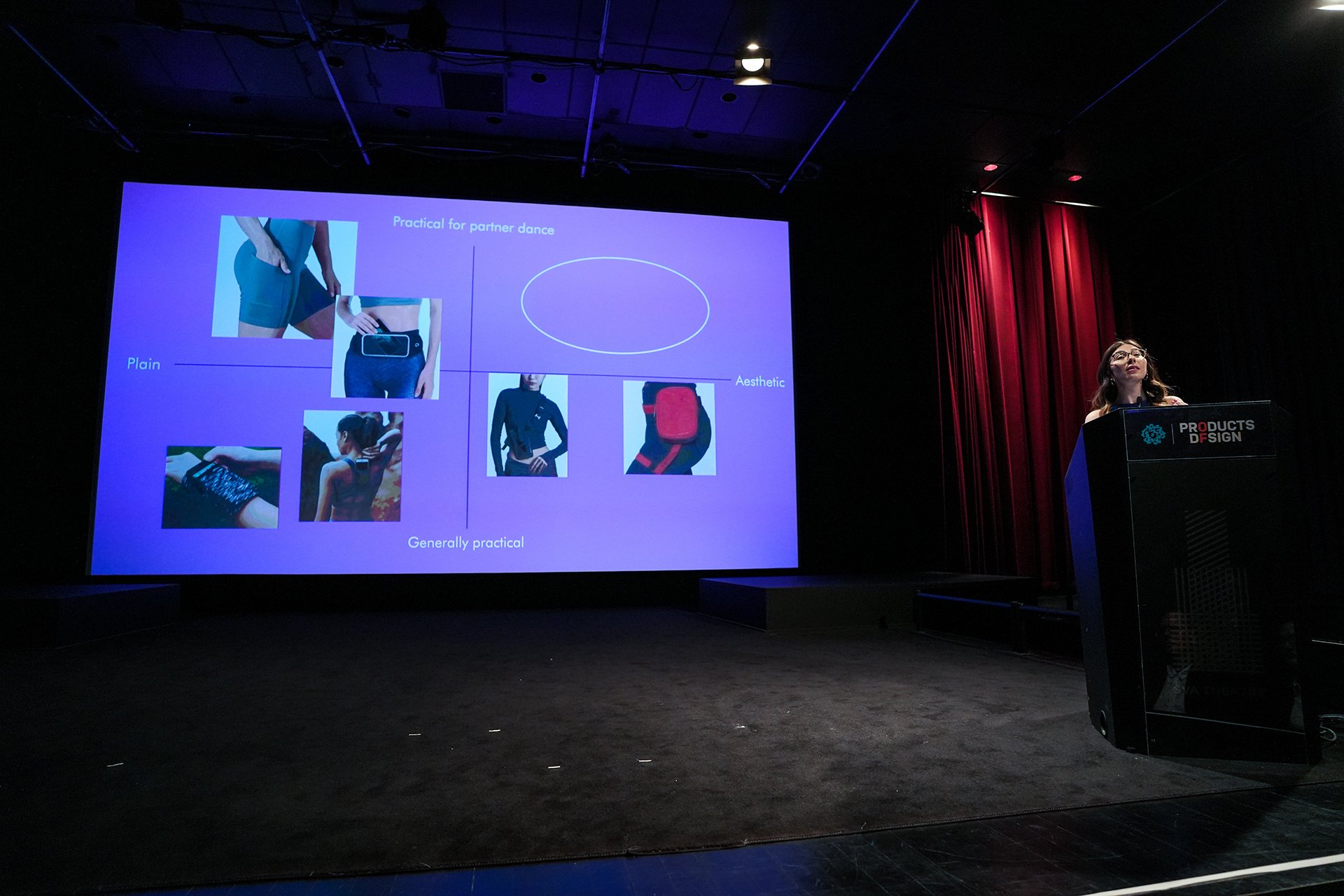
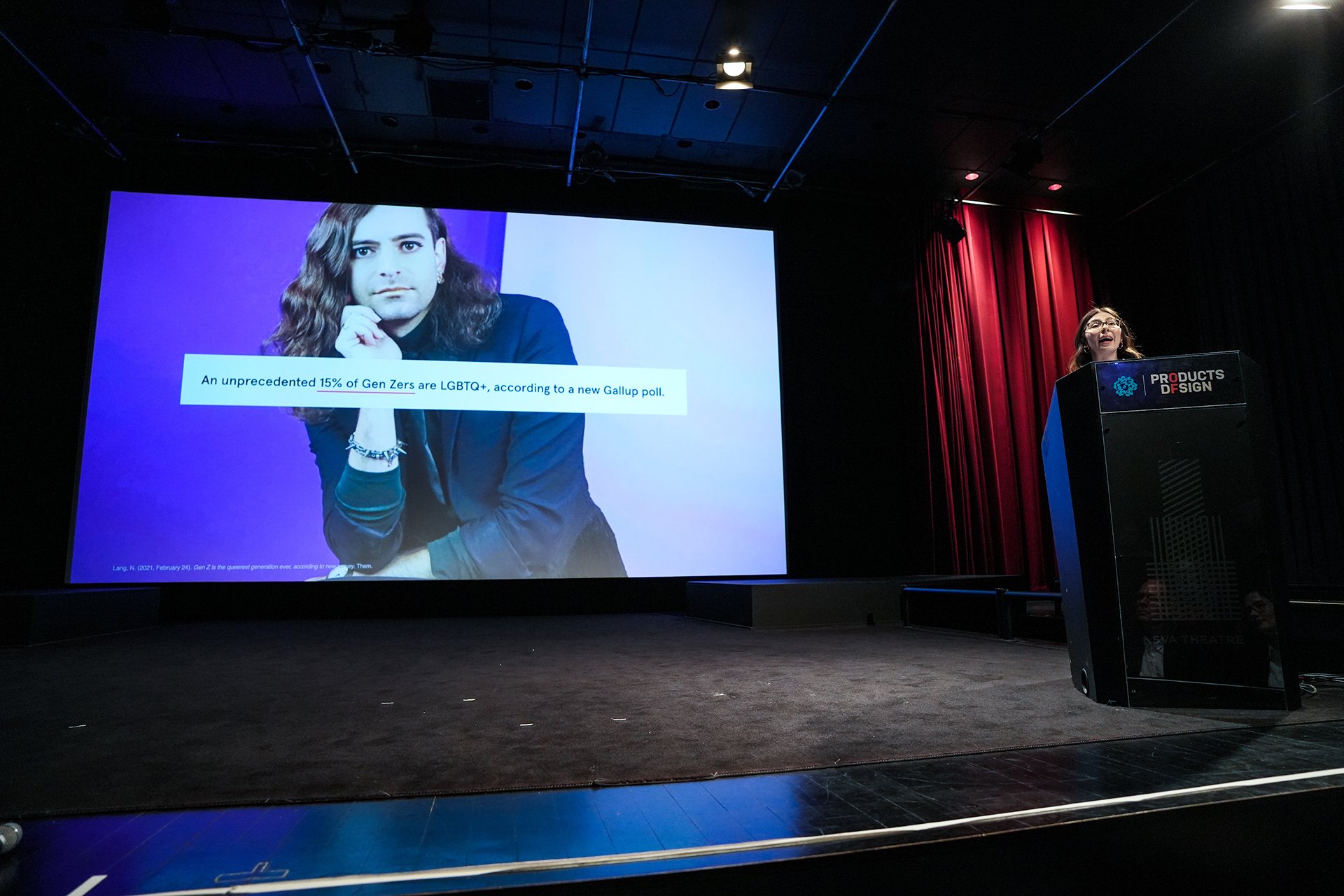
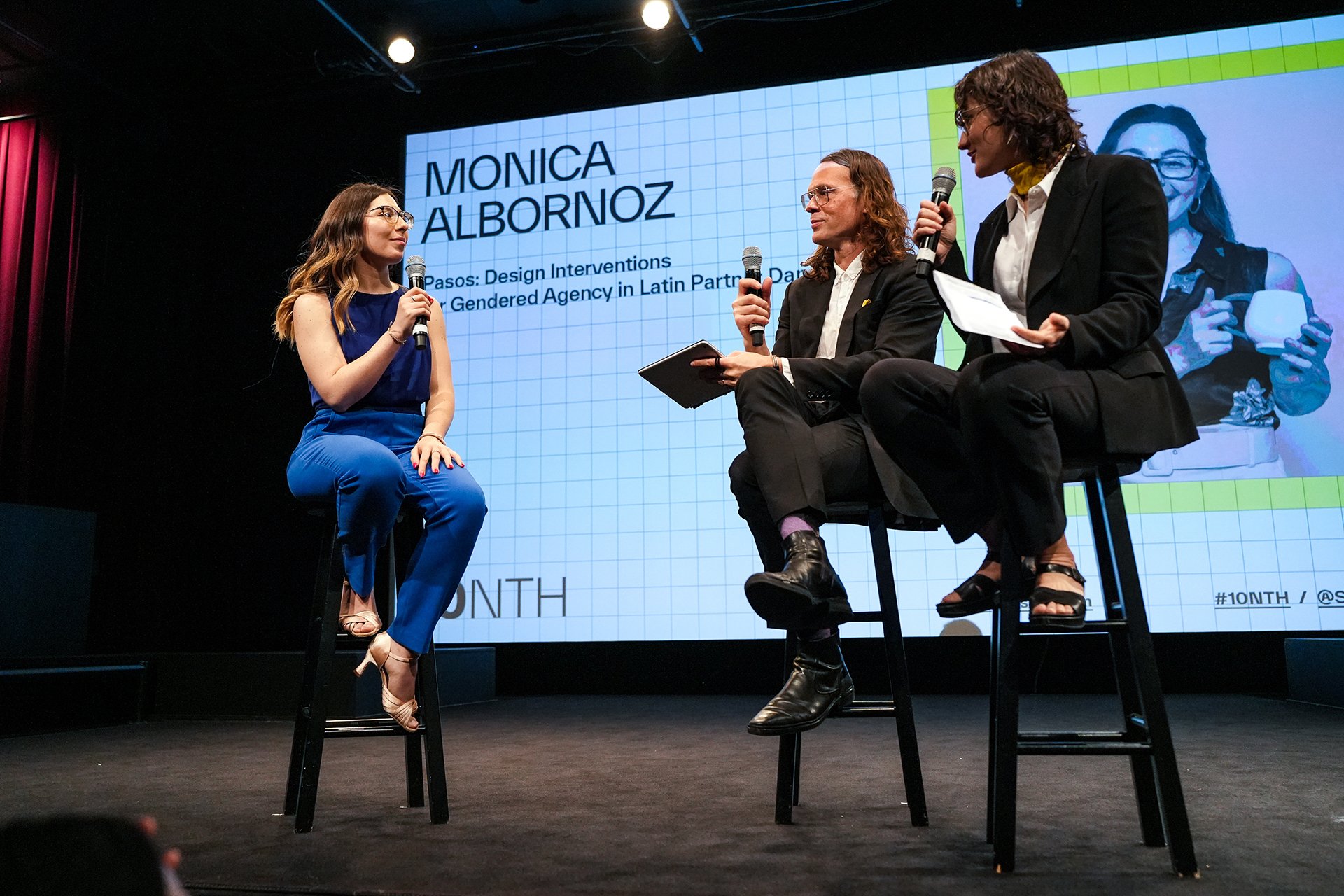
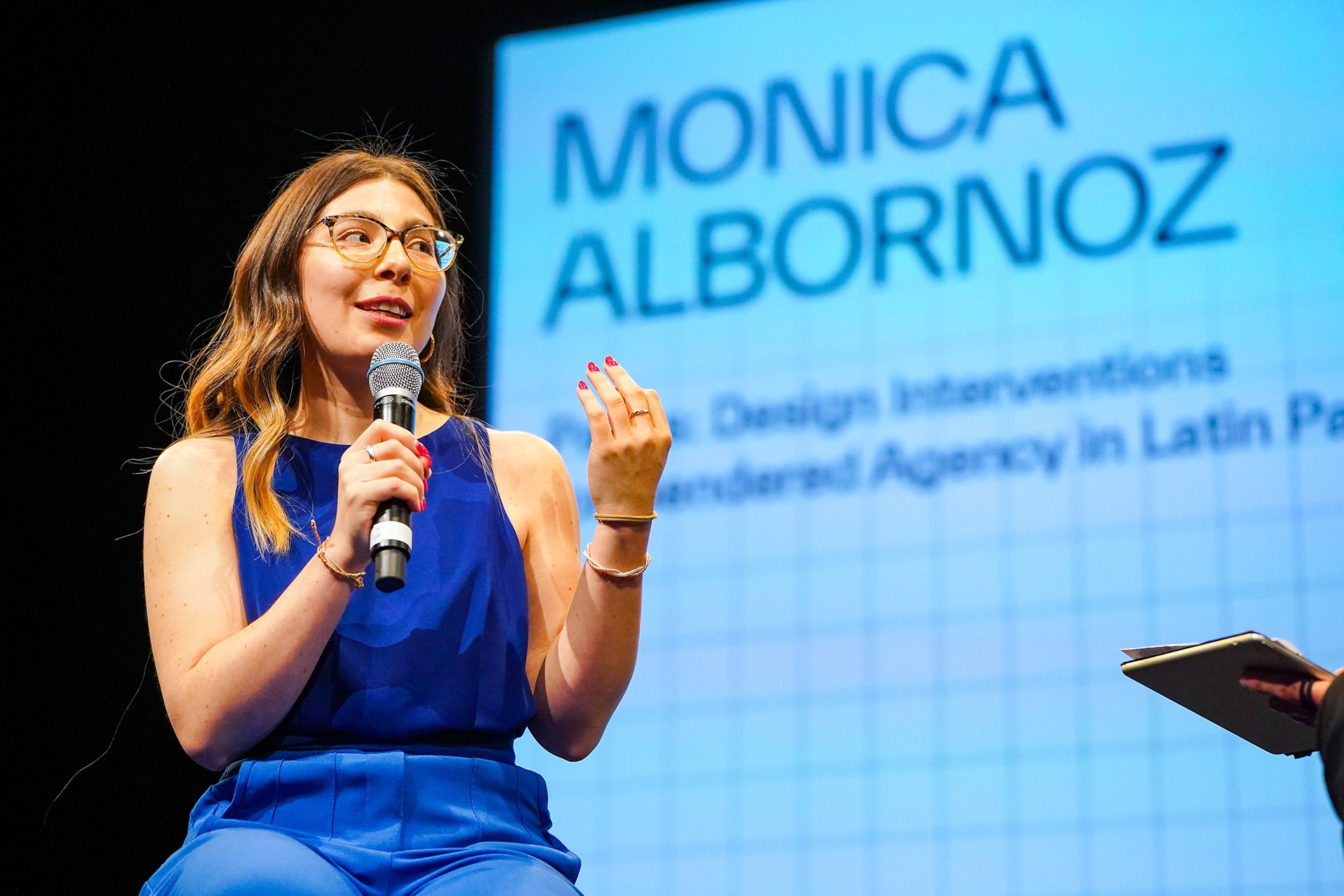
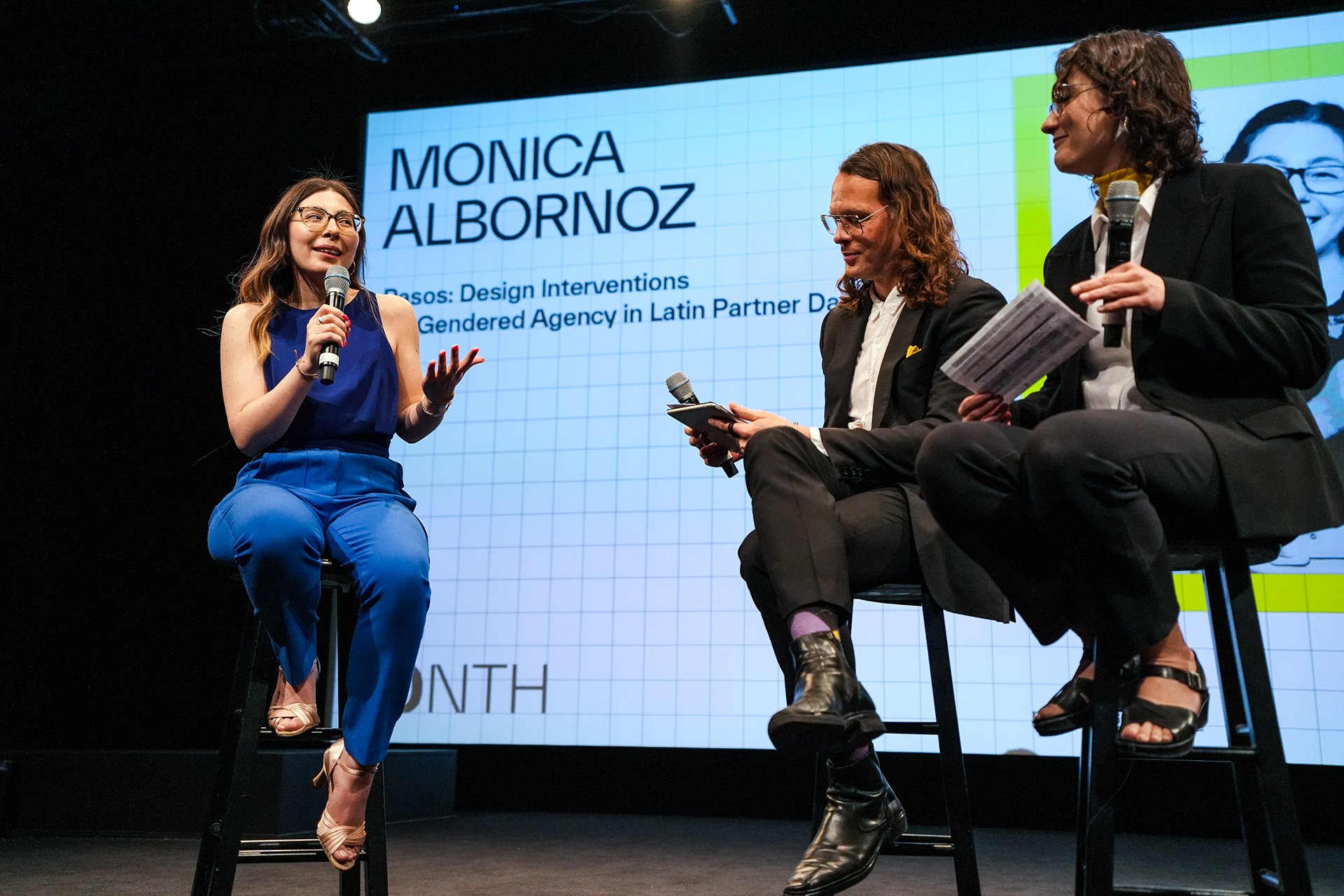
By addressing four barriers towards leadership that women face at various touchpoints of the partner dance experience, Monica proposes that facilitating women's pursuit of leading can be the pathway for breaking the gender norm for everyone.
Pasos is a year-long exploration of gender and agency in Latin partner dance. In this investigation, the experience of cisgender women is a vehicle to interrogate how to intervene in the ecosystem and norms of the cosmopolitan dance experience to break down traditional and exclusionary gender barriers for all dancers, regardless of their gender.
DanceCode
The barrier upon arrival: Ignorance
DanceCode is a kit for dance event organizations that color-code wristbands according to dance roles. This prevents women from unknowingly falling into the follower role, as it confronts all dancers with their options upfront. The project also supports dancers in communicating their preferred roles through active choice. DanceCode leverages an existing interface in the dance experience to facilitate an interaction based on stated preferences instead of gendered assumptions.
The DanceCode starter kit includes paper wristbands, a wristband storage box, signage, and inventory tracking materials. Dance organizations can order wristband refills on the DanceCode website.
Ladies Take the Lead
The barrier in the class: Social pressure
Ladies Take the Lead is an experiential workshop for women in Latin partner dance. Monica designed this workshop in response to women's struggles in traditional partner dance classes—where women who want to lead must battle self-compliance and covert and overt pressure to stay in (or pursue) the role of leader.
"By welcoming only women-identifying dancers, Ladies Take the Lead created a level playing field where there were no default leaders or followers. It essentially removed the gender norm for an entire 60 minutes."
Monica chose a "switch-role" class model for the experience, where all participants practiced leading AND following. Furthermore, the pedagogy of the class introduced the soft and hard skills required for both roles.
Beyond giving women easier access to leading in class and a holistic set of skills, the goal of Ladies Take the Lead was to create a supportive and feminine environment that could change women's mindsets about leading in dance by helping them enjoy it and see themselves as leaders.
Lineup
The barrier at the "social": Lack of support
Lineup is a digital dance card that helps beginner dancers find willing partners to practice with at the "social." Lineup functions as a platform with three user types: Learners, Helpers, and Businesses. Learners are dancers looking to learn the nontraditional role of their gender. Helpers are intermediate or advanced dancers eager to help beginners in nontraditional roles. Businesses are dance organizations that run dance events.
"The fear of rejection is worse than asking for a dance. An uneager verbal 'yes' that feels like a 'no' during the dance hurts women leaders' confidence the most, often resulting in them sitting on the side or returning to the safety of following for the rest of the night."
Through user research, Monica gathered that asking for dances is emotionally taxing for beginner women leaders. Women plan out who they will ask to dance and—even then—panic up until the moment when they actually do it. This stems from the norm in partner dance where followers receive invitations to dance instead of doing the asking, which acts as an access barrier for beginner women leaders looking to practice what they might have learned in class.
"The systemic design of Lineup is meant to drive change towards equity-driven partner dance experiences."
Tenera
The barrier at the end: Femininity
In partner dance, dancers wearing clothes without pockets struggle to connect with others and build community. This often means—women. Tenera is a wearable holster that allows those wearing dresses, skirts, or other non-pocketed clothing to exchange contact information immediately after a dance ends.
"Tenera celebrates the expressive freedom of partner dance while making a statement that leadership must not be masculine."
To learn more about Monica Albornoz’s work, take a look at her projects in more detail at www.moazdesign.com.

